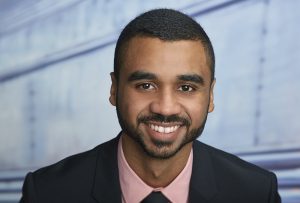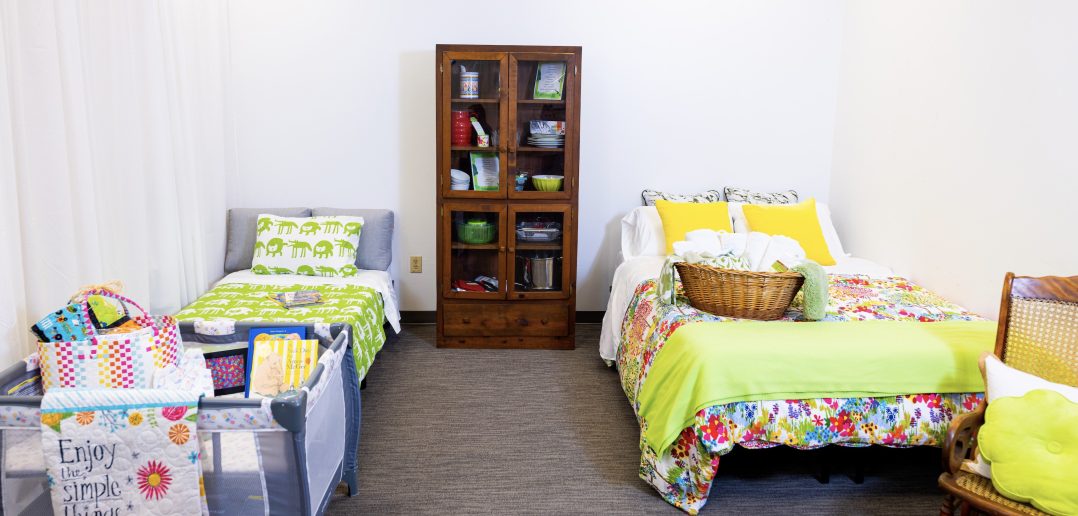Jason Colón was hoping to work on a data for good project – any data for good project, really – offered through SAS’ analytic volunteer program. He had no idea the one he would be asked to do would hit so close to home for him.
The organization – which SAS has partnered with before for a Data Drive – is the Green Chair Project, a Raleigh-based nonprofit that provides furnishings and bedding to vulnerable families.
GCP had turned to SAS in hopes of updating its needs assessment, last done in 2019 by the NC State Poole College of Management, for its “Sweeter Dreams” program that makes sure impoverished kids have beds.

"The first step towards being successful in life is getting lucky, right? In a lot of ways, I really count
my blessings. Some people, they're not as fortunate. So to be able to give some kids much-needed privacy, and if that can help kids perform better in school, I'm all about it. That's really kind of the only way for people to just kind of move up and move out of bad situations."
- Jason Colón
Through the volunteer marketplace, the job fell coincidentally to Colón, who had an unexpected connection to GCP’s mission – he grew up knowing exactly what it was like not to always have a bed of his own.
“Coming from a lower socio-economic background, all that was stuff that I went through,” he says. “So I could definitely relate on that front.”
As a child, he split time between the Dominican Republic, with his mom, and the United States, with his dad. The common denominator in both homes was having to share space with siblings and stepsiblings, at times sleeping four to a room with at least two sharing a bed.
And his interest in the importance of sleep didn’t stop when he was all grown up with a job and an income. If anything, it grew.
About five years ago, Colón heard a podcast featuring Matthew Walker, a professor of neuroscience at the University of California, Berkeley, and founder of the Center for Human Sleep Science, talking about the benefits of good sleep on neurological development, performance and health.
Walker mentioned that lack of quality sleep is deeply linked to whether someone might develop Alzheimer’s Disease, and Colón immediately thought of his grandmother, who suffers from Alzheimer’s – and it freaked him out.
“It was the most impactful two-hour segment I've ever listened to,” Colón says of the podcast. “I used to be someone to get, like, five hours of sleep and say, ‘Oh, I'm fine.’ But once it started going to seven-and-a-half or eight, my life drastically changed. So to me, sleep is something that I really care about.”
Between his deep interest in sleep and the fact that he specializes in statistical training in his role at SAS as an analytical training consultant, it’s hard to imagine a more perfect fit to meet Green Chair Project’s needs.
Data helps us make more informed decisions, particularly when considering the ever-changing needs of our community to be sure we are keeping our thumb on the pulse of the latest changes and trends.
- Jackie Craig, CEO, Green Chair Project
With the last Sweeter Dreams needs assessment more than three years old, it didn’t account for changes that occurred over the course of the pandemic.
Because census data during that period tended to be murkier than usual, Colón had to build a simple model to generate new and missing data points for certain metrics before circling back with GCP for more data to plug into his equation.
The result was a more accurate and up-to-date picture of how many beds GCP needed to target for children in the Wake County area.
“Data helps us make more informed decisions, particularly when considering the ever-changing needs of our community to be sure we are keeping our thumb on the pulse of the latest changes and trends,” says Green Chair Project CEO Jackie Craig. “We appreciate how SAS is helping us learn more as we set our sights on the audacious goal of ensuring that no child in Wake County has to sleep on the floor or lacks a bed of their own.”
While Colón is already fired up about being a part of his next analytic volunteer project, it means a lot to him that his first one just so happened to involve the unlikely parallel of having once needed this type of help himself and now being able to help GCP provide it.
“The first step towards being successful in life is getting lucky, right? In a lot of ways, I really count my blessings,” he says. “For some people, they're not as fortunate. So to be able to give some kids much-needed privacy, and if that can help kids perform better in school, I'm all about it. That's really kind of the only way for people to just kind of move up and move out of bad situations.”

